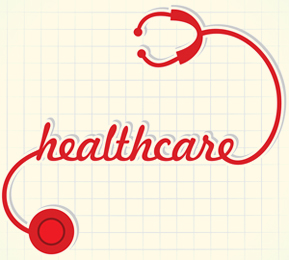Creativity and productivity flourish more in the soil of freedom. That is what the growing BYOD trend offers all business sectors now – more freedom and flexibility. This trend is catching up fast in the healthcare sector too with many healthcare providers encouraging their administrators, caregivers and patients to carry their own mobile devices including Smartphones, notebooks and computers to the workplace. The plus points are it allows the clinician easy access to the latest up-to-date information, helps reduce errors and improve the overall health outcomes. What can be more welcome than being able to view medical records, scan and other test results whenever they want to?
Now what does this translate to in terms of security? Any kind of breach in security can damage a provider’s reputation and worse still, patients will lose confidence in you. Therefore being prepared is vital. Let us consider the trends that pose security challenges in your healthcare organization.
- An explosion in the use of iOS and Android devices with additional mobile platforms
- Increasing use of mobile apps
- Increase in cyber threats including malware and malicious applications targeting mobile devices.
How to Manage the Risk Involved
Healthcare organizations need to wake up to this present day trend and understand the various risks associated with BYOD. Under the HITECH (Health Information Technology for Economic and Clinical Health) Act of 2009, healthcare providers can incur heavy penalties up to $ 1.5 million dollars for data security breaches. Moreover, they are mandated by federal law to notify the affected patients if the breach involves unencrypted data. This Act was introduced to encourage the use of health information technology, while at the same time making healthcare providers totally responsible for keeping ePHI (electronic Protected Health Information) secure and HIPAA compliant. So, the gravity of any kind of data breach is quite evident.
The ideal strategy for healthcare organizations would be to implement effective measures to manage the risks while maintaining compliance and keeping employees happy and efficient by allowing maximum use of their mobile devices. Here are a few helpful suggestions:
- Ensure that your network has sufficient bandwidth
- Ensure that credit and debit card transactions are adequately protected according to the PCI DSS (Payment Card Industry Data Security Standards) requirements.
- Make sure that all user devices have the required security software and updates before allowing them access to your network.
- Policies can be enforced for personal devices, as for instance, denying access to particular sites or services.
- Data, documents and corporate e-mail at rest and in-transit on all Android and iOS devices can be encrypted.
- Monitor device integrity on a constant basis.
With the right risk management strategy, HCOs (Healthcare Organizations) can reap the advantages promised by the BYOD trend and usher in the new wave of technology.




